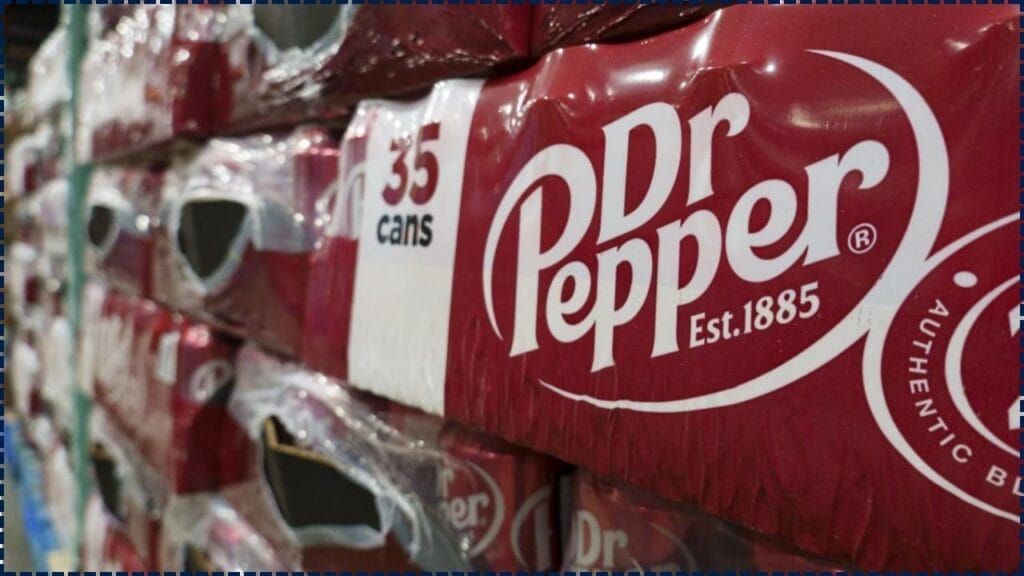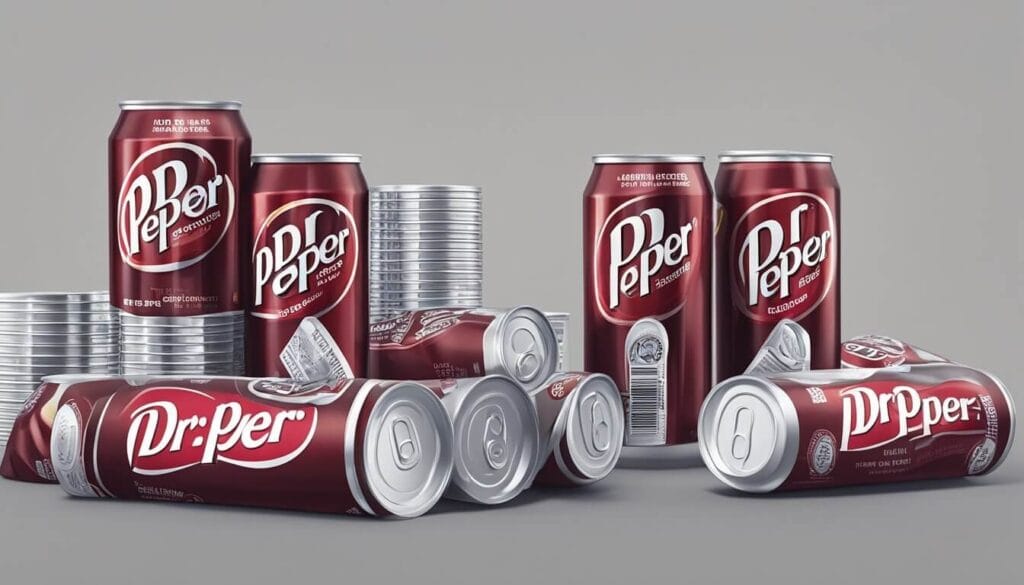A serious recall alert for Dr Pepper Zero Sugar has been issued to protect people’s health and well-being, as it’s more than just a soda issue. The FDA announced a Class II recall for 19,203 cases of Dr Pepper Zero Sugar from Jacksonville, Florida, because these cans were mistakenly filled with full-sugar soda, not matching their zero-sugar label. This error could harm individuals with diabetes.

Those on low-carb diets, or children watching their sugar intake, threatening their safety. If you have these cans at home, please check them carefully and act quickly to keep your family and community safe.
Dr Pepper Recall Alert Issued After Dangerous Contamination
| Feature | Details |
|---|---|
| Product Recalled | Dr Pepper Zero Sugar (12 oz cans, 12/24‑packs) |
| Amount | 19,203 cases |
| Contamination Issue | Full-sugar soda labeled as sugar-free |
| Recall Date | Initiated May 23, 2025; Class II on June 5, 2025 |
| Best‑by Date | February 16, 2026 |
| Production Location | Jacksonville, FL (Pepsi Bottling Co.) |
| Distribution | Florida, Georgia, South Carolina |
| Health Risk | Temp. or medically reversible health issues |
| Who’s Most Affected | Diabetics, keto/low-carb diet followers, kids |
| Official Source | FDA Recall Notices |
The Dr Pepper recall is a serious alert to protect people’s health, not just a small issue, urging us to care for our community. About 20,000 cases of sugar-free Dr Pepper were mistakenly filled with full-sugar soda, posing a risk to people with diabetes and those watching their diet. No one has been hurt yet, but the danger is real, and we must act to keep everyone safe. Please check your cans, return or discard any affected ones, monitor your sugar intake, and be cautious when choosing drinks. While soda is sweet, safety and honesty are far more important, ensuring we look out for each other.
Why This Recall Matters—And Fast
Most product recalls revolve around bacteria or foreign objects. This one is different—it’s a labeling error, but one with real consequences. A full-sugar drink masquerading as sugar-free can seriously affect blood sugar levels in diabetics, kick people out of ketosis, or simply pack on unwanted calories.
The FDA’s Class II recall signals the mistake could cause temporary or reversible health problems, especially for those monitoring sugar. While no injuries have been reported, it’s better to be safe than sorry.

Who’s at Risk?
- People with diabetes – 39g sugar per can can spike glucose quickly.
- Keto/low-carb folks – just one can can derail your metabolic state.
- Kids – sudden high sugar intake can cause sugar rush, mood swings.
- Health-conscious adults – those watching sugar for weight or fitness goals.
- If your goals include low sugar, this mix-up could mess with your health or nutrition plan.
Dr Pepper Recall Alert Issued After Dangerous Contamination Spot a Recalls’ Can
Be on the lookout for these details:
- Brand: Dr Pepper Zero Sugar
- Size: 12 oz cans, in 12-pack or 24-pack cartons
- Batch Code: XXXXRS05165
- Best‑by Date: February 16, 2026
- Sold in: FL, GA, SC
- If your case ticks all these boxes, it’s part of the recall.
What You Should Do Now
- Don’t drink it. Even one can could spoil your sugar control.
- Return it or dispose of it. Most retailers and Pepsi will give refunds or replacements.
- Pour it out carefully, then recycle the can.
- Track your sugar intake — even a single can packs 39g.
- Report symptoms. If you experience a sudden sugar spike, dizziness, or fatigue, seek medical attention.
- Report to FDA. You can file a complaint at: FDA Consumer Complaint Page.
What Led to This Mix-Up?
According to FDA filings and news reports:
- A labeling station error at the Jacksonville plant allowed sugar-free cans to get filled with regular soda.
- Digital scanners missed the switch, and labels shipped unchanged.
- Mistakes in automated processes aren’t rare—Coke pulled 13,152 cases of lemonade mislabeled as sugar-free in 2024 (wbsm.com).
- Clearly, food and drink robotics aren’t flawless.
Company Response & Recall Steps
Pepsi Beverages Co. acted voluntarily after internal quality checks flagged the problem. Per FDA records:
- They stopped production, traced shipments, and issued a recall on May 23.
- On June 5, FDA deemed it a Class II event.
- Stores across FL, GA, SC are retrieving inventory.
- PepsiCo is proactively offering refunds or exchanges, and posted detailed recall info on their website.
Bigger Picture: Labeling Accuracy & Trust in Soda
Labeling issues like this erode consumer trust. With sugar under increasing scrutiny—including regulations like the 2016 FDA label updates and regional sugar taxes—such errors hit harder.
Research shows mislabeling causes 20% of food recalls since 2020. Meanwhile, sugar lobbyists have long influenced messaging around sugary drinks. These recalls put pressure on the industry to improve traceability and transparency.
Dr Pepper Recall Alert Issued After Dangerous Contamination What Manufacturers Must Do Better
1. Enhanced Automated Tracking
Install barcode scanners at every stage—labeling, filling, packaging—with cross-checking.
2. Manual Spot-Checks
Even in automated lines, occasional human oversight is needed to catch oddities.
3. Real-Time Sampling
Conduct random taste or sugar tests during production shifts.
4. Recall Monitoring Systems
Track where products shipped and ensure they’re quickly removed.
5. Clear Labeling Audits
Professional auditing of labeling systems minimizes mix-ups.
Related Links
Why Hitting Snooze Could Make You More Tired According to Sleep Experts
This U.S. Town Lives Without WiFi or Smartphones in 2025 and Here’s Why
Newark Airport’s Air Traffic Control Issues Highlight National Infrastructure Challenges
Expert Perspective
“Labeling errors can be just as damaging as contamination—not because they kill, but because they break trust and could harm sensitive groups,”
— Dr. Maureen Thompson, Registered Dietitian, University of Florida .
Healthier Drinks You Can Rock Safely
- Sparkling water (LaCroix, Spindrift) – zero sugar, zero hustle.
- Unsweetened iced tea – flavored punches, without sugar.
- Diluted juices – 25% juice, 75% water, less sugar crash.
- DIY soda – seltzer + citrus for control and fizz.
- Always scan labels and choose drinks you trust.
FAQs
Q1: What’s a “Class II” recall?
That’s when a product can cause temporary or reversible health effects—serious, but not life-threatening.
Q2: Can I still drink it if I’m not sugar-sensitive?
Yes—but you’re drinking a full-sugar soda, not diet. Track those calories!
Q3: Will I get a refund without a receipt?
Probably—most retailers will accept returns even without a receipt during a recall.
Q4: Could this happen to other sodas?
Yep. Similar issues hit Coke in 2024 with mislabeled lemonade.
Q5: How can I report future mislabeling?
Use the FDA’s complaint portal or customer service for affected brands.








